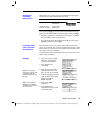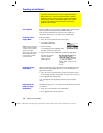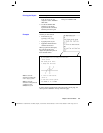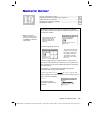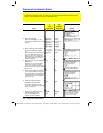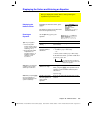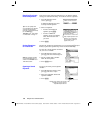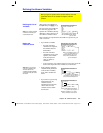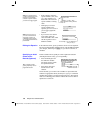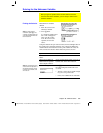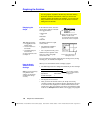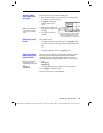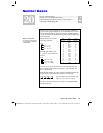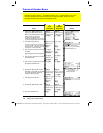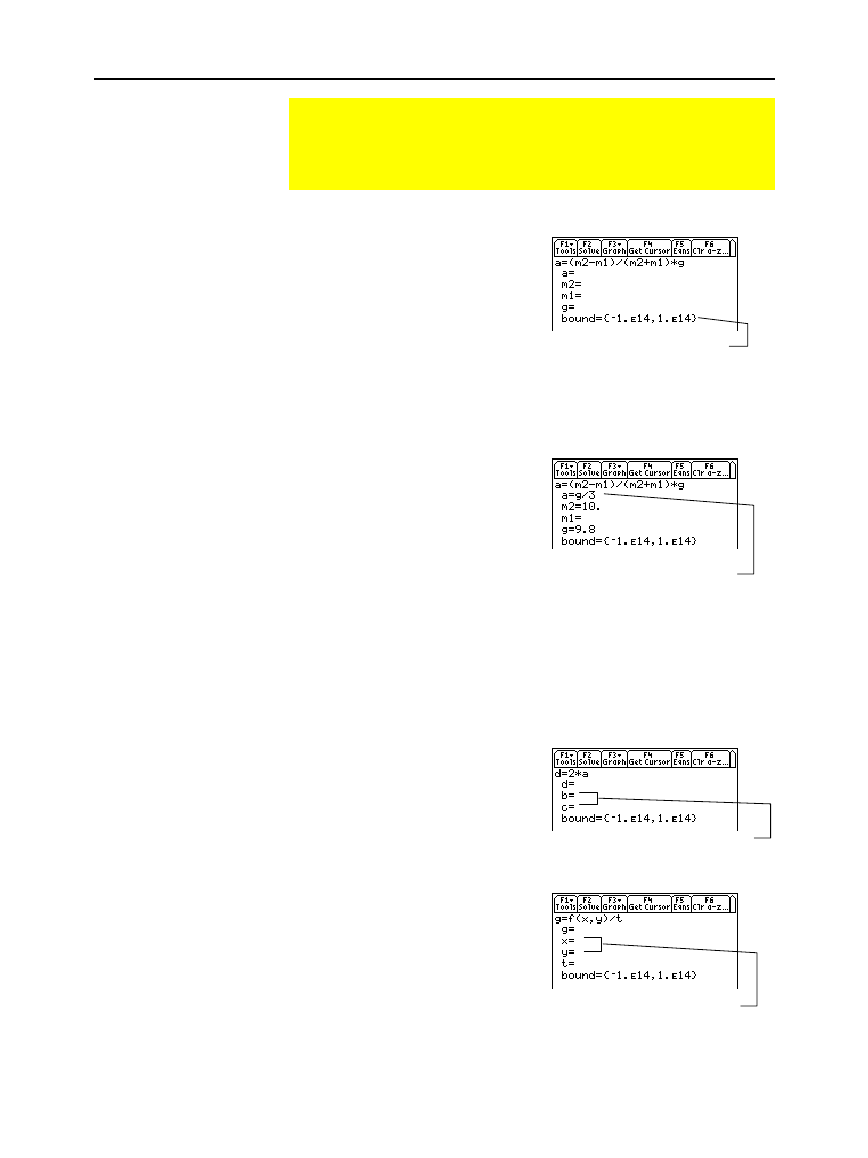
Chapter 19: Numeric Solver 337
19SOLVER.DOC TI-89/TI-92 Plus: Numeric Solver (English) Susan Gullord Revised: 02/23/01 1:16 PM Printed: 02/23/01 2:19 PM Page 337 of 10
A
fter typing your equation on
the
eqn:
line, press
¸
or
D
.
The screen lists the variables in
the order they appear in the
equation. If a variable is already
defined, its value is shown. You
can edit these variable values.
Enter a number or expression for all variables except the one you
want to solve for.
¦ If you define a variable:
− In terms of another
variable in the equation,
that variable must be
defined first.
− In terms of another
variable that is not in the
equation, that variable
must already have a
value; it cannot be
undefined.
− As an expression, it is evaluated when you move the cursor off
the line. The expression must evaluate to a real number.
¦ If the equation contains a
variable already defined in
terms of other variables,
those other variables are
listed.
¦ If you refer to a previously
defined function, any
variables used as
arguments in the function
call are listed, not the
variables used to define
the function.
Defining the Known Variables
After you type an equation in the Numeric Solver, enter the
applicable values for all variables except the unknown
variable.
Defining the List of
Variables
Note: If an existing variable
is locked or archived, you
cannot edit its value.
Notes and
Common Errors
Note: When you assign a
value to a variable in the
Numeric Solver, that
variable is defined globally.
It still exists after you leave
the solver.
The solution must be within
the specified bounds, which
you can edit.
Since a is defined in terms
of g, you must define g
before a. When you move
the cursor to another line,
g/3 is evaluated.
If variable a was defined
previously as b+c
!
a, then b
and c are listed instead of a.
If f(a,b) was defined previously
as
‡
(a^2+b^2) and your
equation contains f(x,y), then x
and y are listed, not a and b.



